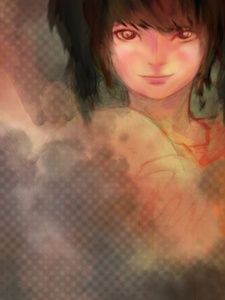Sep 24, 2010
Okay, before I get into the nitty gritty, I’ll make it clear that I won’t be wasting time by recounting the series, so if you were hoping to get a better squint into the plot- sorry but there’s no juice. None.
Based on Ryu Fugisaki’s epic manga series Houshin Engi, Soul Hunter had all the potential to be a master piece in itself. But the constraints of condensing over 200 chapters of vivid narration into 26 episodes of animation not only forced the title off to an entirely different plot tangent but also off the leader boards of great anime.
STORY:
The story is your typical
...
shounen in which the protagonist is made to face a myriad of powerful oppositions and does so with the aid of a growing group of allies each with distinct and varying abilities. With that said, Soul Hunter doesn’t differ all that much from the conventional, but (also as a side note for those you’ve read the manga) Soul Hunter initiates rather faithfully to the base plot of the manga, though given the constraints of only 26 episodes, it’s no surprise that the series much conclude on an alternate route. However, this is where the anime really falls short, because in its attempt to replicate the manga, the anime instigates a range of big ideas and concepts about humanity, history, immortality and the prospect of a greater omniscient power- which the ending never got around to address nor justify.
In short the anime grind on slowly with minor development per episode, while the ending was to a large extent very ironically rushed.
ART & SOUND:
Soul Hunter is not a new anime and with that I hope to have justified my stance on its lacklustre animation and odd assertions of elevator style background music. There are numerous occasions where the animation was limited to the panning of a still image and though limited screen frames are really no fault of the anime itself, it’s common occurrence was (at least to me) a serious impairment to the overall quality of the show. Sound in general was mediocre throughout the series, with low emphasis on both diegetic and non diegetic sounds, the anime suffered greatly in its attempts to capture and create ambiance.
CHARACTER:
For a 26 episode series, to incorporate the full cast of its manga predecessor would be highly unlikely, though the anime did make an effort. But that’s just the problem, the show attempts to give air time to a range of major characters (or rather, the key ‘fighters’ of the series) and neglects the fact that in showing them all, none of those characters under go any major development, there was no learning curve for the characters and everyone just conveniently reaches an epitome in the time of need. Indeed, this may be a reflection of episode constraints, but realistically speaking, you can take this as a warning to just postpone watching this show.
ENJOYMENT:
Having read the manga, I acknowledge that I may be biased in saying that the anime really didn’t amount to much for me. The fight scenes are mediocre, the emotional scenes aren’t sad, the humour is forced and the while it’s possible to get a laugh or two out of the series, that’s really all there is.
For those who’ve read and enjoyed the original manga, you WILL be disappointed, especially since none of Fugisaki sensei’s genius will be evident here and none of depth, emotion and characterisation that made the manga great can be found here either.
For those who haven’t read the manga, then yes, you’ve guessed it- this is not the place to start getting into the series. Period.
Reviewer’s Rating: 5
What did you think of this review?
Nice
 0
0
Love it
 0
0
Funny
 0
0
Confusing
 0
0
Well-written
 0
0
Creative
 0
0Show all
